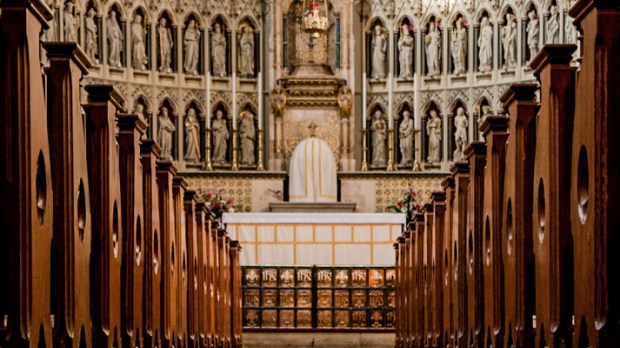Lenten Campaign 2025
This content is free of charge, as are all our articles.
Support us with a donation that is tax-deductible and enable us to continue to reach millions of readers.
Often a teenager (or even an adult) will ask, “What do I have to do?” The person asking such a question is looking for the absolute minimum of what is required so that a specific task can be accomplished.
The Catholic Church has also heard that question over the years and has provided an answer in what are called the precepts of the Church. The Catechism of the Catholic Church explains, “The precepts of the Church are set in the context of a moral life bound to and nourished by liturgical life. The obligatory character of these positive laws decreed by the pastoral authorities is meant to guarantee to the faithful the indispensable minimum in the spirit of prayer and moral effort, in the growth in love of God and neighbor” (CCC 2041).
These precepts are the basic requirements for growing in the spiritual life. They are just enough to lead a person closer to God and the ultimate goal of heaven. While we are encouraged to go above the minimum, sometimes we have to start somewhere and this is exactly where we should start.
If we want to challenge ourselves and be heroic in our daily lives, all we have to do is look to the saints for inspiration, as they were experts at going above and beyond the minimum requirements.
Read more:
Can a sinner become a saint?
Similar to the Ten Commandments, these “rules” are not meant to be oppressive, but are designed to be guideposts along the road, pointing a soul in the right direction.
The first precept (“You shall attend Mass on Sundays and holy days of obligation”) requires the faithful to participate in the Eucharistic celebration when the Christian community gathers together on the day commemorating the Resurrection of the Lord.The second precept (“You shall confess your sins at least once a year”) ensures preparation for the Eucharist by the reception of the sacrament of reconciliation, which continues Baptism’s work of conversion and forgiveness.The third precept (“You shall humbly receive your Creator in Holy Communion at least during the Easter season”) guarantees as a minimum the reception of the Lord’s Body and Blood in connection with the Paschal feasts, the origin and center of the Christian liturgy.The fourth precept (“You shall keep holy the holy days of obligation”) completes the Sunday observance by participation in the principal liturgical feasts which honor the mysteries of the Lord, the Virgin Mary, and the saints.The fifth precept (“You shall observe the prescribed days of fasting and abstinence”) ensures the times of ascesis and penance which prepare us for the liturgical feasts; they help us acquire mastery over our instincts and freedom of heart.The faithful also have the duty of providing for the material needs of the Church, each according to his abilities.

